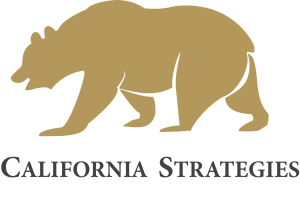"Is it too easy to hold a recall in California? Lawmakers raise changes after Newsom victory"
From the Sacramento Bee
Both Democrats and Republicans on Thursday said they are open to tweaking California’s 108-year-old recall laws, but they’re far from consensus on what those changes should look like. Lawmakers gathered on Thursday for the first formal discussion of the state’s recall process following Gov. Gavin Newsom’s victory against a recall campaign last month.
Democrats are concerned it’s too easy to qualify a recall in California.
Compared to the other 19 states that have recall processes, the Golden State has one of the lowest petition signature thresholds at 12% of ballots cast in the previous election and one of the longest signature gathering periods at 160 days.
The result is that citizens can force an expensive recall election whenever they disagree with an elected official, argued Sen. Steve Glazer, D-Contra Costa. Newsom won the recall by the exact same margin as his election in 2018, with 61.9 percent of voters supporting him.
“The recall was not intended to be… a backdoor for the losing side of the election to relitigate those results,” Glazer said. Republicans, including Assemblyman Kelly Seyarto, R-Murrieta, said they are open to changing the recall in a way that makes it more efficient or conducts it in a better manner, but they are cautious about diluting an avenue of direct democracy. “This is the last bastion of checks and balances we offer for the voters,” he said.
Lawmakers heard a range of remedies for the problems brought up by Democrats. Some experts suggested raising the signature threshold, or requiring some evidence of malfeasance to recall a public official, as other states do.
Others suggested breaking the recall into two elections, one that asks voters about removing the incumbent and the other that asks voters who should replace him or her.
One option, experts said, could be designating the lieutenant governor as the automatic successor in a gubernatorial election. Some pointed to Georgia’s recall requirements, which include a higher signature threshold and a shorter qualifying period.
Former Assemblyman Jim Cunneen, once a Republican but now a member of the new California Common Sense Party, said holding a recall election close to a regularly scheduled election is impractical. He suggested the possibility of prohibiting a recall from occurring in the year before a primary election.
State Sen. Jim Nielsen, R-Tehama, pushed back on the notion that the recall process is abused in California. The Newsom recall, after all, was only the second time a gubernatorial recall had qualified in state history. “I would say our system has been pretty reasonable and responsible over the years,” he said. “There may be some fine tuning in order, but it’s not an egregious problem.”
Democratic lawmakers say they plan to spend the next months gathering information about possible changes, but could come armed with legislation with the session resumes in January. Any change to the recall process would require a constitutional amendment and, by extension, statewide approval from voters.
Read more at: https://www.sacbee.com/news/politics-government/capitol-alert/article255368916.html#storylink=cpy



























